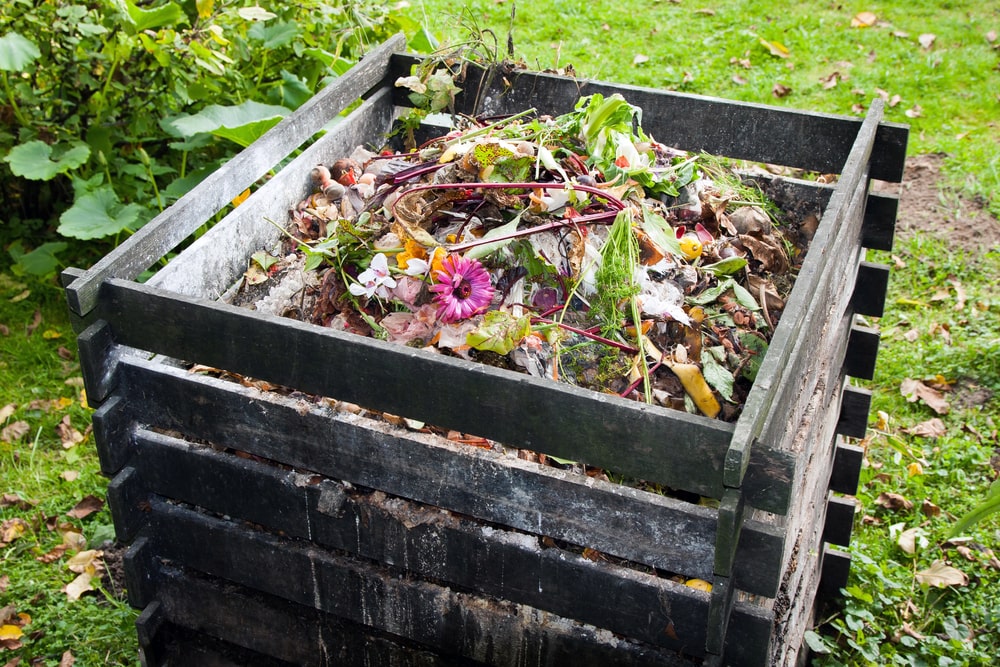The cold winter season may be creeping up, but that doesn’t mean it’s time for homeowners to forget about their gardens until spring returns. An eco-friendly, money-saving trick that many gardeners have started to utilize is making their own organic compost. While many may think composting can only be done when it’s warm out, this isn’t true. Gardeners can continue to support their compost pile throughout the winter months to ensure that they have a fresh, nutrient-filled batch of organic compost for gardening come spring.
Here are some tips to keep a compost pile alive and well when the temperatures drop and the snow begins to fall.
Understanding the Microbial Diet
Microbes thrive on a diet that includes both nitrogen-rich and carbon-rich materials. Nitrogen provides the protein that microbes need for growth, while carbon offers the energy they require to carry out their decomposition tasks.
Nitrogen-Rich Materials
Nitrogen is essential for the rapid growth of microbial populations. Common nitrogen-rich materials you can add to your compost pile include:
- Fruit and Vegetable Peels: These kitchen scraps are not only readily available but also packed with nitrogen.
- Coffee Grounds: Used coffee grounds are an excellent nitrogen source. Plus, they can help improve soil structure when the compost is used in your garden.
- Eggshells: Although they break down slowly, eggshells contribute valuable calcium and nitrogen to your compost.
Carbon-Rich Materials
Carbon is crucial for energy, helping microbes to break down tough plant fibers. Some excellent sources of carbon-rich materials are:
- Leaves: Fallen autumn leaves are abundant and rich in carbon. They also help to aerate the compost pile.
- Straw: Straw is a fantastic carbon source that can also improve the compost’s structure.
- Shredded Newspaper: Clean, shredded newspaper can be an effective way to add carbon to your compost. Just ensure it’s free from glossy prints and heavy inks.
Layering for Success
To keep your compost pile active during winter, it’s beneficial to add these materials in layers. This layering approach helps to maintain a balance between carbon and nitrogen, providing an ideal environment for the microbes. Here’s how to do it:
- Start with a Base Layer: Begin with a layer of carbon-rich materials such as leaves or straw. This helps to create a breathable base.
- Add Nitrogen-Rich Materials: On top of the base layer, add a layer of nitrogen-rich kitchen scraps like fruit peels and coffee grounds.
- Alternate Layers: Continue to alternate between carbon and nitrogen layers. This approach ensures that the microbes have constant access to both types of materials, keeping them well-fed and active.
Maintaining the Pile
During the winter, it’s also crucial to monitor the moisture level of your compost pile. Cold air can dry out the pile, so occasionally check for moisture and add water if necessary. Covering the compost with a tarp can help to retain moisture and heat, creating a more hospitable environment for the microbes.
By understanding and catering to the dietary needs of composting microbes, you can keep your compost pile active and productive even in the coldest months. This continuous decomposition process ensures that by spring, you’ll have rich, ready-to-use compost to enhance your garden soil.
Break Up Particles
The larger the scraps are in a compost pile, the more difficult it is for microbes to break them down. To help them out and speed up the process, gardeners can break up food and other scraps into little pieces before throwing them on top of the pile. Particles smaller than two inches are ideal and can also help to form a layer of insulation to keep the heat in.
Nearly 50% of Americans have gardened in the last year, and over 50% do so to save money on produce by growing their own fruit and vegetable gardens. Organic compost is one of the best natural garden landscaping supplies to promote the growth of these types of gardens, and by taking care of their compost piles throughout the winter, gardeners can start their fruit and vegetable beds off on the right foot as soon as spring arrives.

